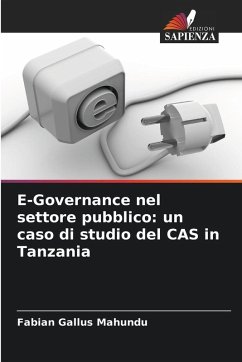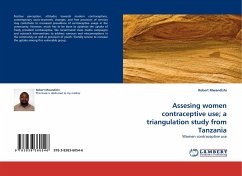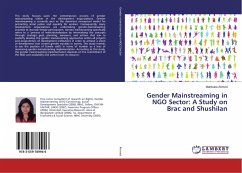
E-Governance in the Public Sector: A case study of the CAS in Tanzania
Versandkostenfrei!
Versandfertig in 6-10 Tagen
49,99 €
inkl. MwSt.

PAYBACK Punkte
25 °P sammeln!
The work demonstrates that, notwithstanding the fast development and uptake of Information and Communication Technologies (ICTs), the implementation of the Central Admission System (CAS) in Tanzania is hampered by the fact that most of the end-users of CAS (particularly applicants) have relatively low access to the ICT infrastructure. Several factors continue to have a significant effect on the implementation of CAS, which in turn lead to implications for the uptake of improved admissions service delivery and quality assurance. A digital divide, resistance to change by some higher education in...
The work demonstrates that, notwithstanding the fast development and uptake of Information and Communication Technologies (ICTs), the implementation of the Central Admission System (CAS) in Tanzania is hampered by the fact that most of the end-users of CAS (particularly applicants) have relatively low access to the ICT infrastructure. Several factors continue to have a significant effect on the implementation of CAS, which in turn lead to implications for the uptake of improved admissions service delivery and quality assurance. A digital divide, resistance to change by some higher education institutions (HEIs), poor ICT skills among applicants, the costs of internet services, unreliable electricity supply, and inadequate IT experts continue to frustrate the objective of improved admissions service delivery and quality assurance. As a technological innovation in the workplace, the CAS has led to a restructuring of admissions work tasks among admissions officers, a need to review job descriptions, introduced tighter controls over admission work processes, and has shaped admission workers' professional identities and self-presentations.












